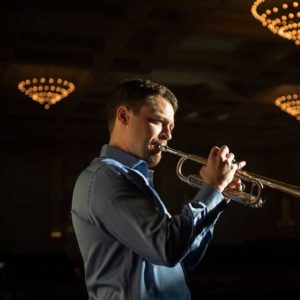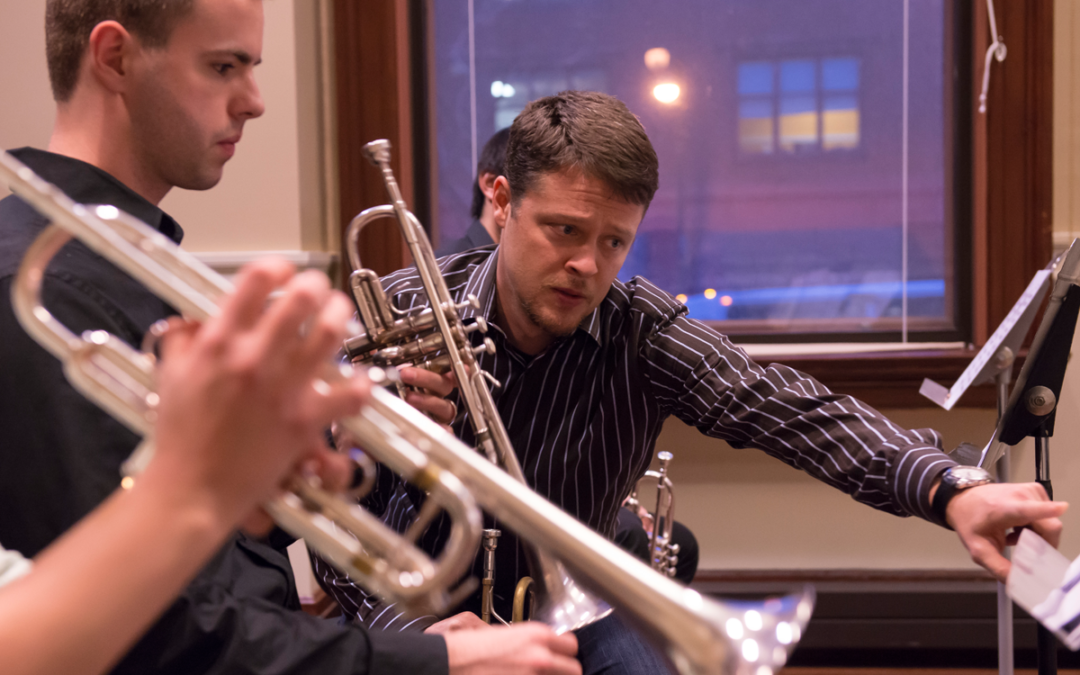Re-frame to re-learn – teach an old dog new tricks on the trumpet or any instrument
You CAN teach an old dog new tricks
I am 46. I don’t think of that as old, but I have been working in full-time orchestras now for over 23 years. I left school in 1998 to start working and yet, in the last three years, I have learned more about how to play the trumpet (and thus, how to teach the same stuff) than at any other time in my life!
Do you sometimes feel like you are stuck in a rut with your playing and don’t know the way forward? Do you feel like you have a lot of good information from various sources over the years of your education and subsequent work life but can’t quite figure out how to fit it all together? Feel free to shoot me an email, any time and we can talk about what’s going on! benwrighttrumpet@gmail.com

Written by Ben Wright
I was stuck in a rut for sure. The lucky part is that I was stuck in a rut with members of the best brass section anywhere. But, feeling like what I was doing didn’t always feel sustainable caused a lot of stress for many years. With the time off caused by the pandemic, things started to come together for me. Namely, I figured out the right mix of fundamentals to keep the ship steering straight, no matter what I was playing in the BSO or Boston Pops – second on an all-Beethoven week means bombing away on low notes. Playing assistant principal on a John Williams Pops program with a rehearsal and concert the same day means playing all over the horn. Performing such a wide range of styles requires balance and for years I didn’t have it. Now, I know, for instance, that piccolo playing during those all-Beethoven weeks is crucial to keeping my upper register viable. Doing my Stamp routine at least three times a week in the middle of the day keeps my face feeling stable and durable.
When I was a grad student, Mark Gould said to me that the back pressure on a High C is the same as a C in the staff. I dutifully nodded and said “OK”. I had NO idea what that meant, but I tried for months to figure it out. Years actually went by, and I forgot about it until I heard him say it to one of my students in a masterclass he gave at NEC. I had a head scratch moment and then forgot it again – I had new-born twins, and forgot MANY things during that time.
Then a year ago, during a lesson with a grad student at NEC, I figured it out – instead of the way Mark put it to me, what I would have said was, the AIR pressure on lower notes needs to be nearly as high as the air pressure we use to play higher notes. This concept has been the key for expanding my range, flexibility, and consistency in a major way.
For instance, we can easily play a G in the staff with the air we have in our mouth! It sounds crummy, but it just shows it can happen without engaging the diaphragm and its accompanying abdominal muscles that move our air up and out through the embouchure. However if you increase the air PRESSURE in your lungs by attempting to move a lot of air through a very small hole (the aperture) and develop the control to parse that air out depending on how loud you want to play, there will be more life in the sound in the lower range, more security in your attacks, and more ease when going from lower notes to higher notes. Try it!
So, no matter your age, you can learn to play better. I had a student in my Summer T5 2021 session who had trouble articulating quickly and was concerned about endurance while playing his freelance gigs. In making some small changes to the way he uses his body with some Alexander Techniques, talking Jacobs-style breathing, and adjusting some of his habits, he felt much more secure and sounded WAY better.
Related Articles
Related
How to Try & Buy The Perfect C Trumpet
I get a lot of questions from people asking what’s the best way to try trumpets. It is especially difficult when you’re younger to try trumpets effectively: and I would be a good example of that. I had a fairly bad c trumpet for all of my undergraduate years and into my first job. I was kind of left to my devices to choose my instrument and when you’re a little less consistent it’s harder to effectively choose an instrument that is right for you. That was why I ended up with a bit of a clunker!
Reframe and Redirect – A More Thoughtful Way to Practice
I had some fun writing this for Trumpet Magazine Online, a publication that has most of its following in Europe. I thank my students both in my T5 Mastercourse and the New England Conservatory and their hard work, which reminded me of these lessons – I often need to remind myself that they work for me too!.
How to Make Audition Recordings
What’s the biggest difference between a recorded audition and a live audition? You have the ABILITY (double edged sword here) to record it as many times as you want or have time to with a recorded audition. When it is live, you get one shot. Most of the recorded auditions now are being asked to be done straight-through, with no edits. This takes more planning and preparation than being able to record one selection at a time. It also gives us as the listeners a better overall idea of your playing.

